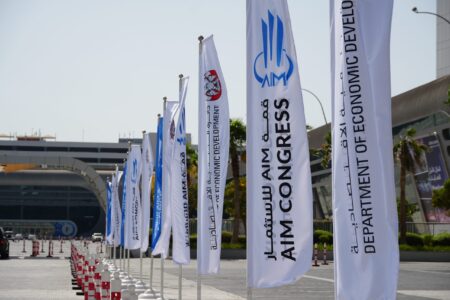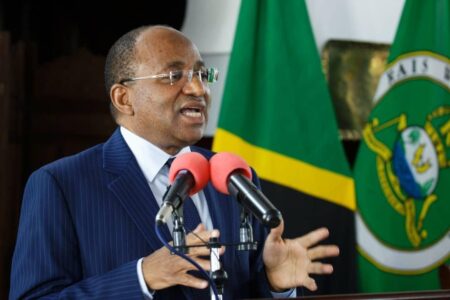- Activists and critics are intensifying their opposition to the East African Crude Oil Pipeline (EACOP), citing concerns over its potential environmental and socio-economic impacts.
- Recent protests erupted in Uganda and Tanzania in response to the announcement that Chinese state-owned entities would fund the controversial pipeline project.
- Delays in financing have caused jitters among investors, leading EACOP shareholders to increase their equity stake from 40% to 52% as the project continues to face scrutiny.
The East African Crude Oil Pipeline (EACOP) is once again at the center of controversy, as activists and critics intensify their opposition to the energy project. Detractors are raising alarms over its potential to inflict severe environmental and socio-economic damage, adding to the growing chorus of opposition.
In a fresh wave of protests, demonstrators took to the streets of Uganda and Tanzania, voicing their dissent against the EACOP project. The peaceful rallies were sparked by a recent announcement regarding the source of funding for the pipeline, which is now drawing heightened scrutiny.
Ugandan authorities recently revealed that Chinese state-owned entities will provide the financing for the EACOP before the year’s end. This marks another chapter in Uganda’s ongoing reference to the involvement of Chinese financial institutions, such as Sinosure and China Exim Bank, in backing the project.
As the Chinese-backed financing moves forward, concerns about delays have rattled investors, with reports indicating that EACOP shareholders have increased their equity stake from 40 per cent to 52 per cent, signaling heightened uncertainty as the project progresses.
The protestors are against participation of the Chinese National Offshore Oil Corporation (CNOOC) and other Chinese contractors in the EACOP and its associated projects. The protestors told media that they want the Chinese financial and insurance stakeholders in EACOP to back off.
Chinese investors mentioned include Sinosure, China Exim Bank and the Industrial and Commercial Bank of China. The protestors believe if the funding is held back the project will not lift off and that is the ultimate goal, to stop the EACOP completely.
Other than fund what they describe as ‘environmentally harmful oil projects; the critics are calling on Chinese investors to turn their money to renewable energy projects instead and other green economic and social development initiatives.
“We urgently call upon the Chinese government and its financial institutions to publicly refute these claims about funding this controversial pipeline, address outstanding human rights violation allegations against CNOOC Uganda, engage meaningfully with local communities living in the Albertine region where CNOOC operates, and explore renewable energy investments,” the Ugandan Coordinator of EACOP Host Communities Organisation (EACOP-HC) Balach Bakundane.
“The oil and gas sector in Uganda has been characterized by human rights violations, environmental and biodiversity destruction, and widespread land grabbing that disrupts household livelihoods,” Bakundane said.
According to the Host Communities’ coordinator, another CNOOC funded project, the Kingfisher project in Uganda, is alleged to have disastrous impact on the environment including destruction of biodiversity.
The Kinfisher project is also alleged to have very negative social impacts in the community including arrests and assaults of community members that are said to have been protesting peacefully.
Other social impact allegations include a series of sexual and gender-based violence that the rights group spokesperson decried vehemently saying the alleged acts are unacceptable in any society.
Seconding the spokesperson, the Ugandan Executive Director of Environmental Governance Institute (EGI), Mr. Samuel Okulony said; “We urge Chinese financial institutions and insurance companies to demonstrate leadership and solidarity by rejecting financing for projects that harm our communities, do not make sound economic sense, destroy the environment, and contribute to the climate crisis.”
Similarly, the Tanzanian Executive Director of the Organization for Community Engagement (OCE), Mr. Richard Senkondo; “The choice is clear: Chinese entities must not replicate the exploitative and destructive agenda of the West. We marched to the embassy in Dar Es Salaam today because, like our brothers and sisters in Uganda, our communities are suffering- displaced from their lands and stripped of their livelihoods. We demand that Chinese decision makers engage with us, listen to our voices, and pursue real alternatives that prioritize people over profit.”
Cementing the criticism was the StopEACOP Campaign Coordinator Mr. Zaki Mamdoo who said; “Chinese state-owned institutions are at a critical crossroads: they must decide whether to back destruction, exploitation, and neo-colonial plundering, or align themselves with the growing global consensus rejecting the East African Crude Oil Pipeline (EACOP).”
ALSO; “The tide is turning against projects like EACOP, with 42 major banks and 28 (re)insurance companies already distancing themselves from its devastating environmental and social impacts. Communities affected by EACOP have been vocal and resolute in their demands for justice and an alternative developmental path.”
“It would be both careless and reckless for Chinese decision-makers to dismiss these calls. Doing so risks not only significant reputational damage across the African continent, where trust and cooperation are essential, but also potential financial fallout from a project rife with controversy and opposition,” he claimed.
Also Read: Nigerian fintech Raenest readies to headline 2025 Africa Tech Summit Nairobi
TotalEnergies and Chinese oil company CNOOC face criticism in EAC
The EACOP has also dragged in its muddy path renowned oil giants Total and Chinese oil company CNOOC. The two companies face allegations of human rights violations and environmental damages in the concerned areas across East Africa.
The over $10 billion oil project involves drilling for oil in Lake Albert in northwestern Uganda and constructing a 1,443-kilometre heated pipeline to transport the resulting crude oil to the port of Tanga in Tanzanian for ferrying abroad across the Indian Ocean.
However, reports by the International Federation for Human Rights (FIDH), Civic Response on Environment and Development, and Lawyers Without Borders allege that there are; “disproportionate security measures, repression, land rights violations, forced evictions and corruption.”
“There has been an acceleration in construction at the oil sites over the last two years, bringing a new wave of human rights abuses,” media quotes Sacha Feierabend, a senior researcher with FIDH.
“There is intensifying repression of human rights defenders, climate and environmental activists, who are trying to make their voices heard regarding this project,” Feierabend alleged.
The allegations claim that some 12,000 families all along the pipeline have been displaced, and hundreds of households around Lake Albert have been demolished.
The protestors condemn the alleged evictions that were apparently done without prior notice or compensation saying they constitute; “violation of international and constitutional law.”.
The activists also claim that there is the potential of land price inflation as well as concerns over working conditions at the sites, alleging that at least two people have died in labour-related incidents.
Also, the complains allege that people who still live in the vicinity of the oil sites report dust, noise, light pollution and vibrations that make living conditions very hard for them.
Then there are fears of potential oil spills, a serious threat to the environment and public health of tens of thousands of people across East Africa.
EACOP investors and government rebuff
Uganda government spokesman Mr. Chris Baryomunsi has dismissed all allegations and critics’ report as “ridiculous and unfounded,” and describing the allegations as mere “smear campaign” against the project.
He confidently called on “…anyone with evidence of human rights abuses to report it to the authorities.”
Likewise, TotalEnergies also rejected the claims and said it strongly disagrees with the allegations; “In Uganda, as elsewhere, TotalEnergies is transparent about its human rights commitments and their implementation,” the company retorted.











